“I always knew I was special – but did I know I was special, or did I convince myself I was?”
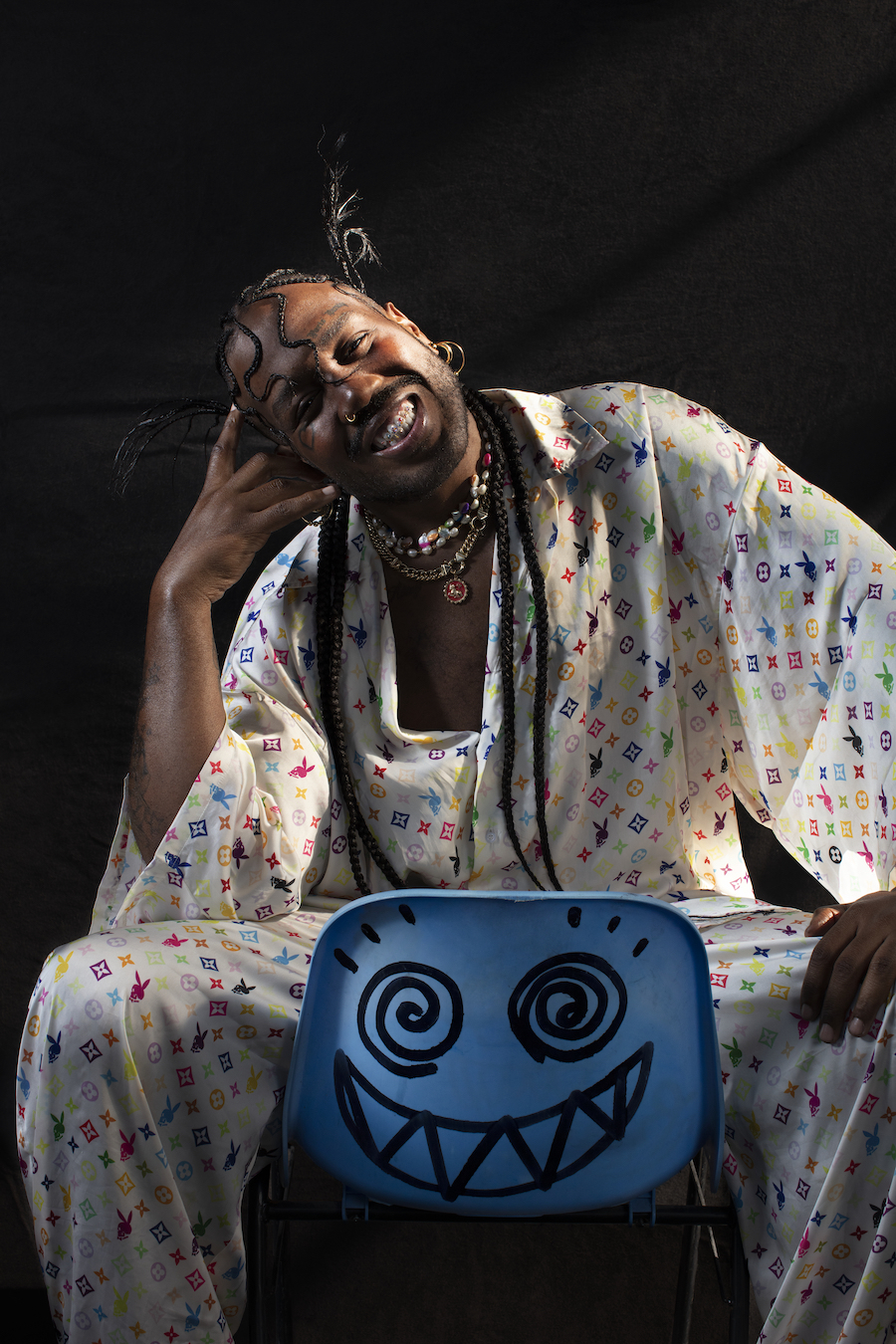
Performance as art can be interpreted in a multitude of different ways. Whether it is the art of leading the crowd on a night out and playing with every sensation, composing a musical landscape that dictates and controls every emotion felt by a collective, or an act as deliberate as walking down a runway, stunning both judges and audiences alike. The art of performance is no stranger to Drag Race France co-host, GQ Man of the Year, and Paris Ballroom legend Kiddy Smile, as I sat with him over the phone in the middle of Couture week between shoots. Not only was Kiddy in the midst of filming the second season of the franchise, but the artist had recently rounded off his own summer DJ tour – performing at over 120 festivals and clubs.
When it comes to DJing, Kiddy approaches the performance as telling a story through music – “taking the audience through this journey of who I am, where I want to be, and where I’m coming from”. The clubs and conducting music live quickly manifested themselves as an origin point for who would become Kiddy Smile, as it was also his ticket into the Ballroom scene. Originally a professional Hip Hop dancer, music acted as a space in which Kiddy could forge an identity for himself: “Doing Hip Hop was great because it was a place where I didn’t have to feel weird about having an ethnic background and not having money – these intersections where living in Hip Hop, but they didn’t allow me to express myself completely.” Against the chic and predominantly white backdrop of Paris, coming from the projects and its own heteronormative structures, make the intersections of being a Queer POC performer feel even more liminal – but after starting a DJ residency at Social Club, Kiddy was approached by Nikki Mizrahi and Lasseindra Ninja: “They were telling me about this culture and these kids they were training – how they needed a place to do a mini ball, and they asked if they could come in a little before to do something just for them.” What struck Kiddy as an amazing opportunity at the time would go on to become a monumental introduction in the timeline of his career, as who he would be performing for where more than bodies filling a room, but a complete and total reconstruction of a space. 15 and 16-year-old kids completely embody their identities, expressing themselves unabashedly and using the dance floor as a place of release and security. “I kind of felt jealous that I didn’t have that when I was younger. It was when they approached me and told me it’s never too late, I was also very old – 22 at the time, and it felt like I was done and it was too late for me. But then I started getting more involved, first as a DJ helping with events, and then as a ballroom performer.” Finding a home in the House of Mizrahi and a family to play for, it was only a matter of time before his own status as an icon of the city would materialise itself, and his artistic integrity would have him revered and requested in clubs all over Europe. When I asked Kiddy about his relationship with the crowds he played for after such an expansive tour, I received a masterclass: “You have the crowd that just wants to listen to songs that they know, the crowd that wants to listen to you perform your own music, and you also have those crowds that aren’t here for the DJ’s – they’re just here for the booze, and the music is just a soundtrack that has to fit their mood (to me, this is a worst-case scenario for a DJ). And then you have the people who want to discover and want to know what you have to say – which to me is the best crowd you can play for. It really depends on all of these occasions, but you never know what you’re going to get.” Tackling performing for such a wide range of crowds requires flexibility, but also integrity, as the artist can both move and invigorate the crowd and other times, take the more selfish route of playing what he wants to listen to. Regardless of the approach, Kiddy is a master storyteller. “When I’m playing, it depends on how my week has been – what do I want to say at the moment? When you’re producing music, it’s set in that specific form – you cannot change it. When you play, it’s less set – the range, and also the fact that you’re using other people’s material, allows you to tell a bit more about what’s going on for you at that moment.” This key difference adds another dimension to Kiddy’s musical pursuits, as the static nature of producing and writing his own songs can only happen once the emotional work has been finished – “I want to have the distance to look back and actually analyse what happened.”
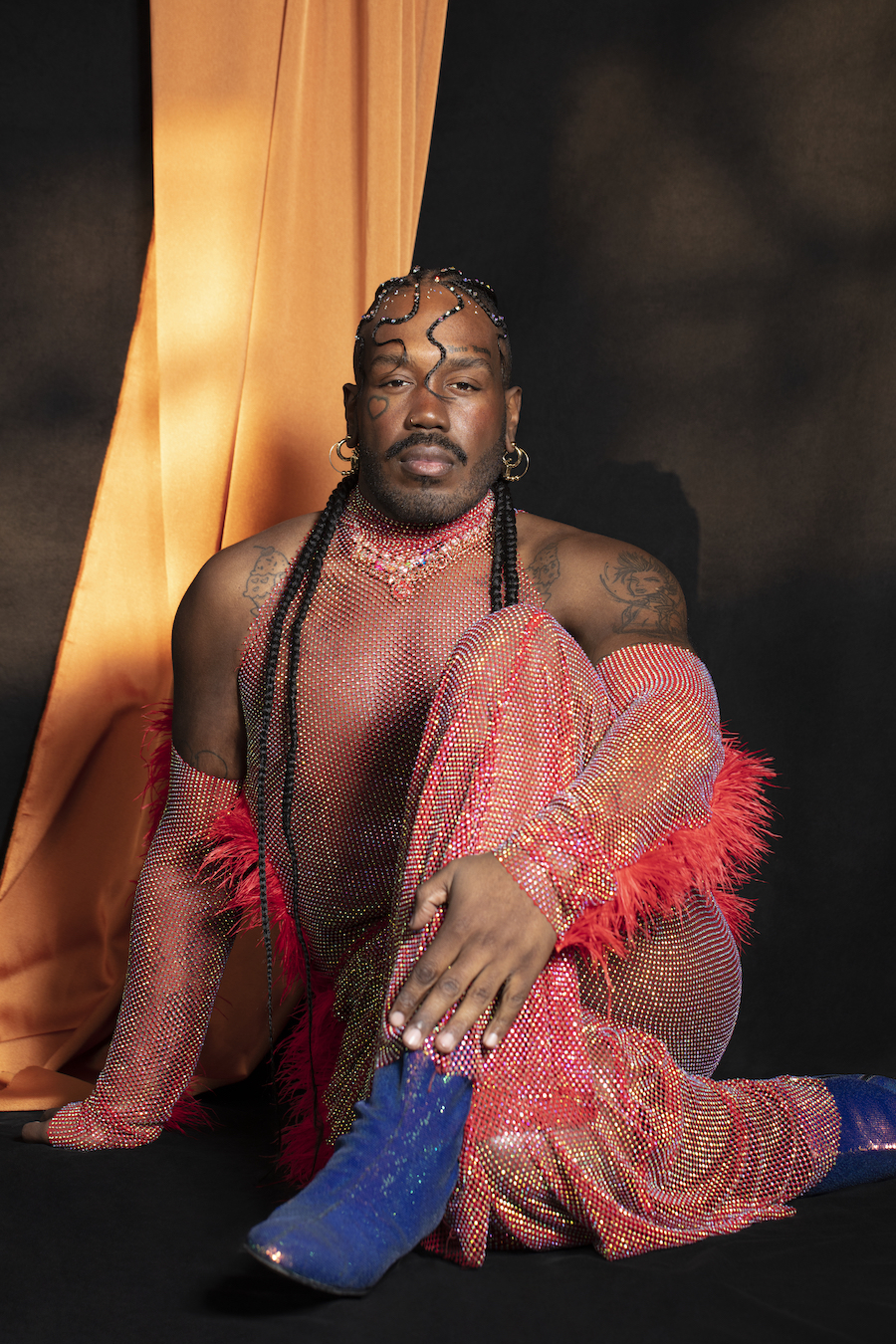
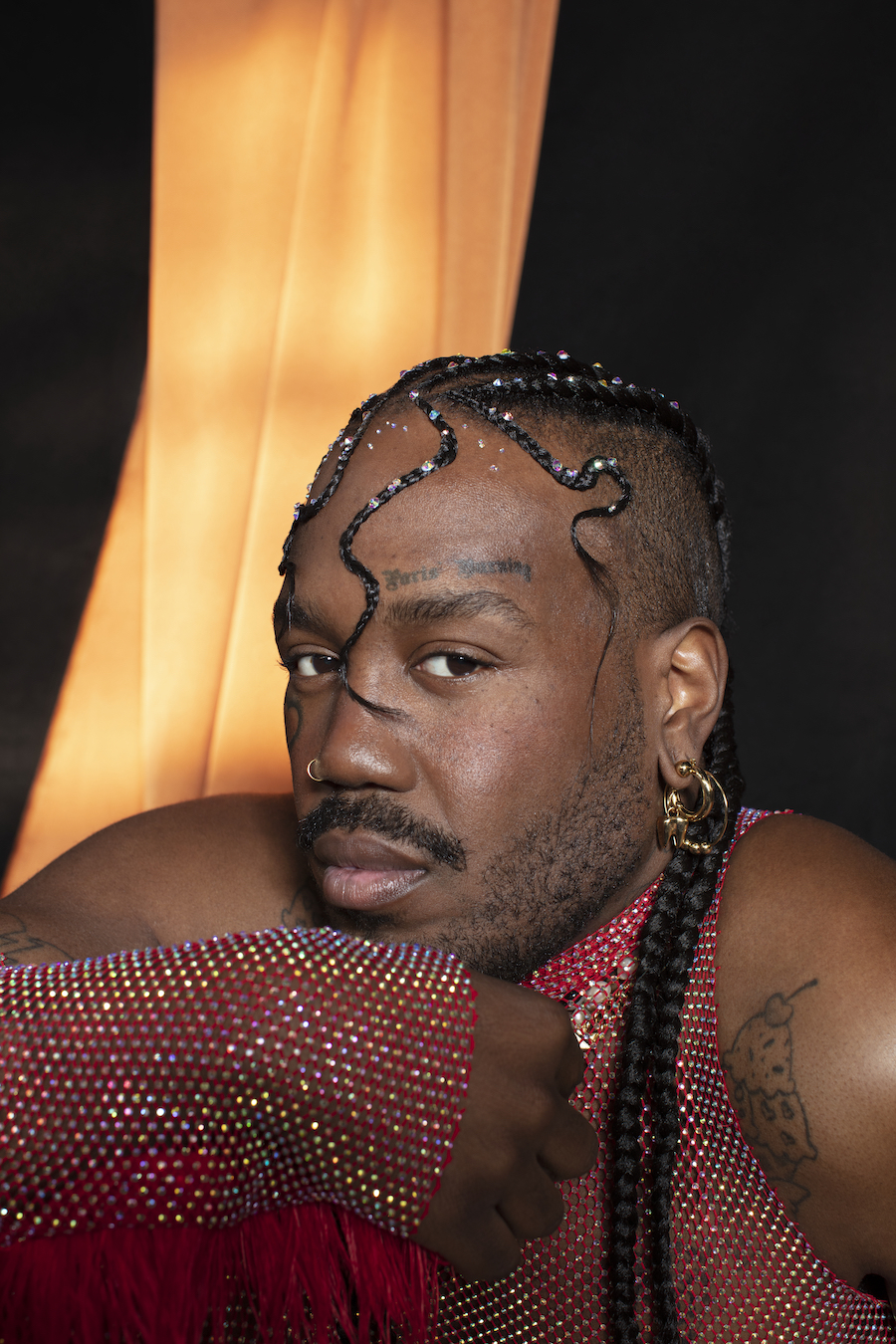
This notion of music as a form of release is something that both an artist and a listener can resonate with, as poetry and its sonic materialisation can alter its grip on you depending on the space and time you experience it through. For example, Kiddy’s track DARK KNIGHT off his album ONE TRICK PONY is a hypnotic, pulsing track that slowly grips the listener and holds them at the perfect tempo, colouring the experience with groovy synths. However, the lyrics themselves tell a harrowingly lonely story, as pleading for a physical and emotional release become synonymous with the listening experience. This dynamic is especially what Kiddy appreciates so much about the genre of House, as “it doesn’t have to be something joyful. You get to do things where if people want to dance, they can dance, but if they want to pay attention to the lyrics, they get to feel something that is so completely different than dancing.” This also comes at a moment when the issue of creating music in the current climate of the industry is dictated by numbers and social media more than ever. Kiddy sees himself as being shielded from all of the TikTok hype and its incredibly high virality turnover precisely because of these complexities within the genre: “There is still something very mystic about house and electronic music here in Europe, and that hasn’t infiltrated social media (which I think has both popularised things, but also demystified them).” To be known, reconstructed, and commodified is often cited as the death of a subculture, with the authentic material conditions that brought a group of people being stripped away and turning an identity into an image. But with such a long and fragmented history, House music as a genre cannot be explained or summarised in 15 seconds, as Kiddy explains. Regardless, being a musician in the current industry is virtually impossible to separate from a digital presence, with Kiddy elaborating on how “Singing is not just about singing anymore. If you want to sing, you have to be good, but you also have to have a look, you have to dance, and you have to have the numbers on social media. You have to understand how to edit videos and all of that – or maybe you don’t, because you have a team – but that requires money, and ultimately that is still something that creates a gap between emerging artists and people who have money.” Despite the ever-shifting and increasingly difficult landscape of being an artist in this current moment, Kiddy’s dedication and passion for his craft make him an artist that transcends past a 15-second snippet of a song, with visually mesmerising visuals to accompany his original tracks. “I think I started doing music because I have things to say, but I feel like maybe because I started doing music later and didn’t have all the tools I wanted, I could complete them through visuals. Like, I have these things that I want to say, but instead of coming in first with melodies or words, they’re images to me. So, when a song is born, it already has visuals in my head, so it’s just up to me how I’m going to articulate that.” Whether he takes you through short stories such as the SPREAD IT and SUGAR videos, or even just embellishing a lyric video for his track THE DEVIL MADE ME DO IT, there is not only a tremendous amount of storyboarding and deliberate action taken on his sets, but also creative teamwork and collaboration with friends. We also see this in his PARIS’ BURNING, VOL. 1 E.P., as the concept behind them is centred around collaborating with people he admires and respects.
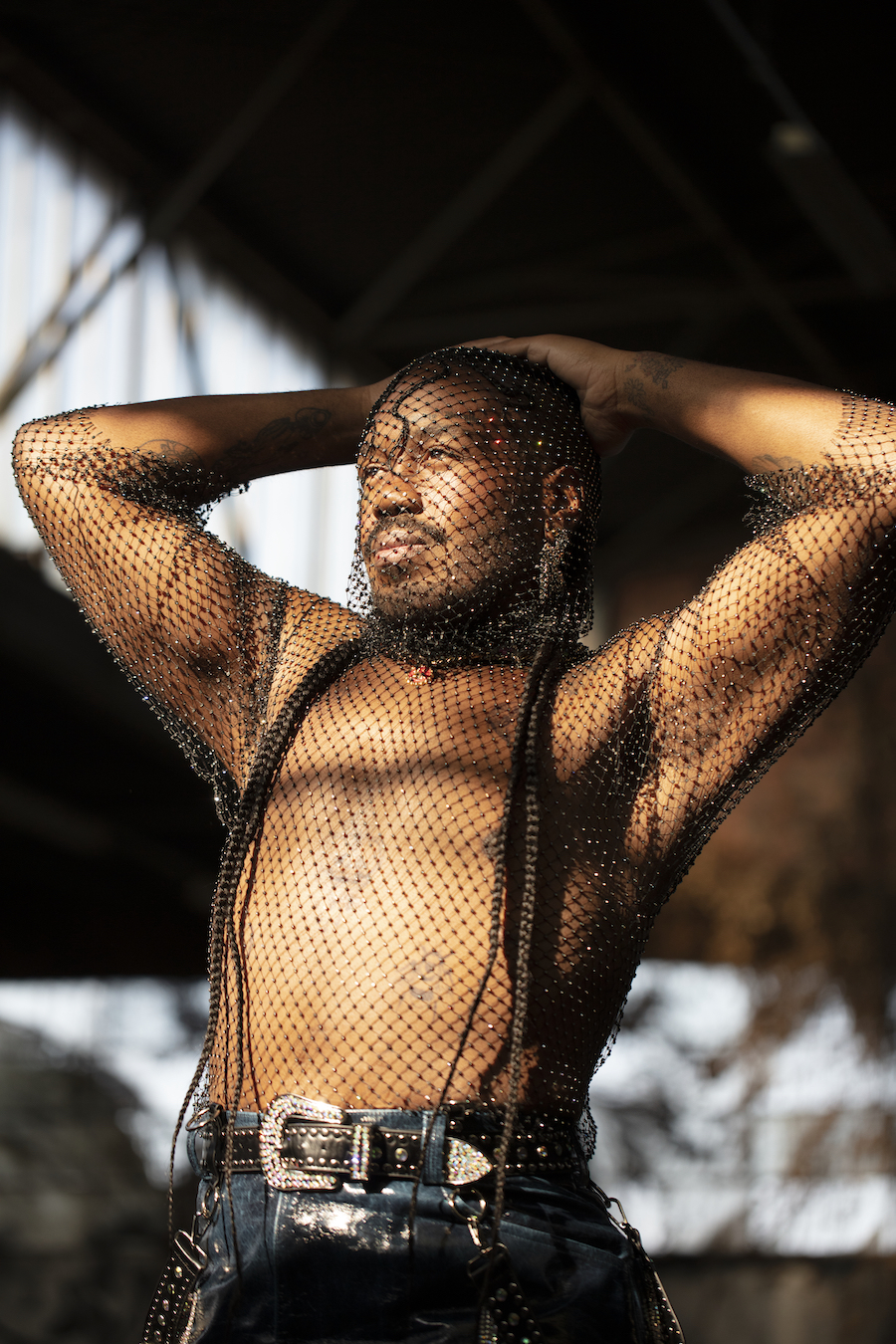
The scope of Kiddy’s collaborations also extends from the music to the film industry, as the artist filled the position of first assistant director for legendary director GASPAR NOÉ’s 2018 film CLIMAX 2018 after meeting the director through mutual friend and fellow DJ, CLARA 3000. After a highly intoxicated first meeting, Noé and Kiddy later reconnected at a Ball, and after the director explained his interest in the scene for his next project, the pair would go to a neighbourhood bar for drinks and the collaboration was officially solidified. “I helped a lot on the casting, on the script, on a lot of things – but then I realised that I wanted to be a part of the movie as an actor, and he had me audition for a part. Clara 3000 and I supervised all of the music for the movie as well.” On working with Noe, Kiddy described the experience as one full of light and genuine joy, as shooting for the project was kicked off by the full cast and crew partying the night before. “Working with Gaspar was an incredible experience – very intense, but Gaspar is such a sweetheart and nothing like his movies. People might think that he’s somebody who’s very dark, but he’s actually somebody who is very bright, full of joy, and loves to dance.” Kiddy also reflected on his original track from the Climax soundtrack DICKMATIZED, as the original demo for the song was played during shooting in order to add character to the club scenes for the dancers, and ultimately landed itself on the soundtrack itself. Kiddy released the track a month before the film’s premiere at the CANNE FILM FESTIVAL, and the track eventually debuted to the public upon the film’s release in September of that year – Dickmatized becoming a track that encapsulates itself within three specific contexts, almost living three different lives, and ultimately showcasing Kiddy’s talents as a multidimensional and interdisciplinary artist. Despite the fondness of the memories from this experience, the artist was not suddenly struck with this feeling of finally being at the right place at the right time, but rather developed this feeling in hindsight when reflecting back on the experience. Although Noe is not a fan of sequels, there are so many opportunities in terms of both visibility and jobs for those involved in the project – but with two more films in the work, Kiddy promises a return to the world of cinema.
Working with world-famous directors, and being the co-host of one of the most iconic reality tv franchises in the world, I asked Kiddy if there was ever tension between the more mainstream aspects of his career and his authenticity. The answer, naturally, can never be a simple one: “I feel like I have access to a mainstream platform, but I don’t really feel like my career has gone mainstream. I feel like I’m still very grounded in something that is quite indie, with one foot in something that’s very niche, and the other foot in something very popular. Not to say mainstream – it’s very pop in the cultural term. If it feels good to me, and it makes sense, then I do it.” It would make sense that if there was one TV show that Kiddy would sign onto, it would have to be Drag Race. But even then, putting yourself on not only a national platform but also an international stage can instantly transform you into a reference. Sitting alongside celebrity guest judges, the association almost elevates a figure to the platform they are giving, while also risking overshadowing an expansive and rich career outside of the television environment. Kiddy was also awarded GQ FRANCE’S MAN OF THE YEAR, finding himself once again in the national spotlight as a reference. “I am also very surprised at everything that’s happened to me – at the moment while they’re happening, I know ‘this shouldn’t happen’ – not because I don’t deserve it, but because I do realise that this is the first time that what I represent – who I am – is being celebrated in this space.” Bearing the burden of breaking the glass ceiling can be incredibly heavy, especially when you can visually see that you’re the only person to make it this far. To be celebrated alongside people who were lucky enough to never have to work as hard as you have, and who institutionally benefit from the same system that holds you down, can make the gesture a genuinely heartwarming one, but allows the weight of an entire community to rest on one person.
Sometimes this kind of pressure can overshadow aspects of life that deserve to be celebrated – but when asked what he does to bring Light into his life, Kiddy emphasises the importance of doing things for yourself. “Us Queer people have been so nurtured into pleasing other people all the time, making ourselves small, and trying not to be an inconvenience all the time. I’m at that point in my life where bringing light to me, means sometimes removing myself from situations and being selfish at times.” You can only appear as the best version of yourself if you still have a grip on what that is, and the cannibalistic nature of trying to work can sometimes hold you back from showing up for the people you want to show out for. “I’m always shocked that people really want me to come and play, so it’s very hard for me to say no. It also taps into the fact that I have to process that this is now my career, and I have to be secure enough to say no to things – not just say yes because I’m afraid that things are going to end, or that there’ll be a time when people won’t want to come.” This prioritisation of the self also circles back to this notion of being an artist, but first and foremost, being a person. Although the pressure of being a reference and being someone who is looked up to can be daunting and too much responsibility for one person, Kiddy also acknowledges that “you have to find a way to give back if you are a queer person and you’re lucky enough to do good – you need to be there and present with your mind and sanity intact”, which can only be done when you allow yourself to be a person who makes mistakes and prioritise yourself regardless of what people might expect from you due to your accomplishments. “I never thought I would be this person. I always knew I was special – but did I know I was special, or did I convince myself I was?” This core belief allowed Kiddy to manifest a life for himself that at times he cannot even believe himself, but was achieved through so much personal growth, healing, sacrifice, and above all else, love.
Although the second volume of PARIS’ BURNING has been delayed, Kiddy teased an exciting new LP currently in the works. When pressed for more answers, I was told “It’s not going to be only house music – that’s all I’m going to say. It’s going to be very me, as I love many different types of music and don’t want to be confined to one.” Given the expansive nature of his portfolio thus far, we cannot help but keep our eyes on the artist as he dominates one art after the other.
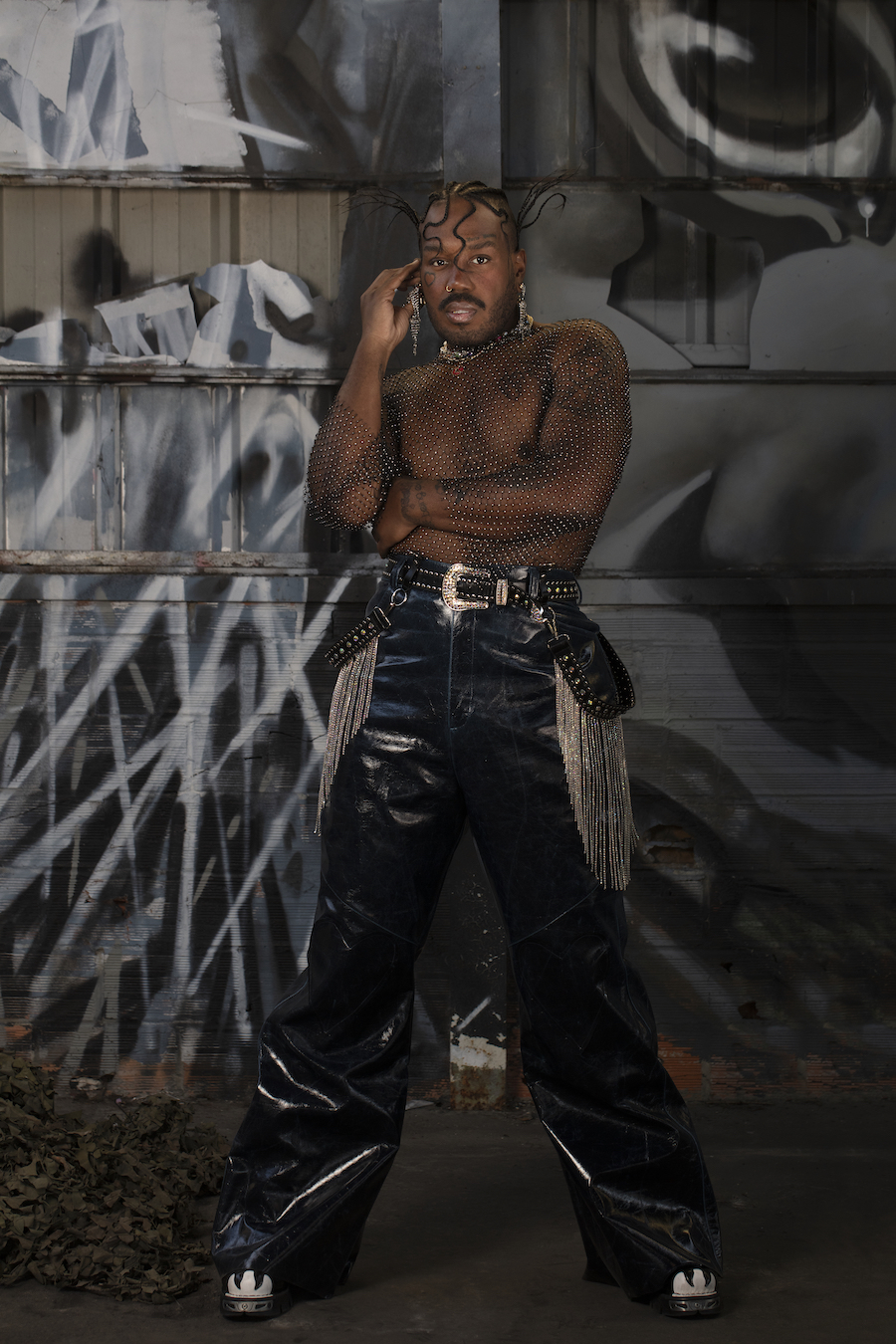
Words by Alia Ayoubi
Photography by Romain Guittet
Hair and Make-up by Marieke Thibault
Talent Agent: Réda Ait